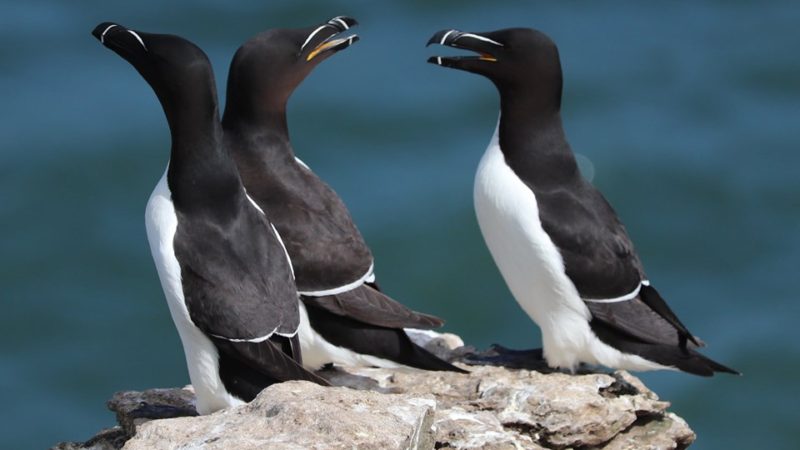Thursday 18th July, the Assemble Plus special edition of the “Café con Sal” conference took place at the ECIMAT. This session has counted on a brief presentation of the Transnational Access program of Assemble Plus (TNA) with the title “The Transnational Access Program of Assemble Plus: an opportunity to access ECIMAT services“, given by Fiz da Costa, local liaison officer for TNA program at ECIMAT (CIM-UVigo), and two conferences given by researchers that were at that time under the TNA program: “Studies into coastal seabirds: understanding the importance of currents, topography and meteorology when estimating responses to environmental change” presented by James Waggitt, lecturer in Marine Biology at the School Of Ocean Sciences (Bangor University, U.K.) and “What drives contrasting patterns of genetic connectivity in Atlantic octocoral species?“, given by Jamie Stevens, professor of Molecular Ecology at the University of Exeter, U.K.
In the first lecture, James Waggitt, whose research focus on behavioural and ecological drivers that affect cetaceans and seabirds abundance and distribution, presented an overview of how currents, topography and meteorology interactions influence the distributions of foraging seabirds in coastal environments, and how predicted changes of anthropogenic developments and climate change affect species habitat selection. The conference summarised several studies across Europe, in which reasons of habitat selection and responses of foraging seabirds to environmental variability within these habitats have been evaluated.
The conference of Jamie Stevens, expert on molecular ecology and evolutionary biology, explained the importance of population connectivity in meta-population dynamics in marine systems and how this connectivity influence population persistence, migration rates and conservation decisions associated with marine protected areas (MPAs). In the conference, Jamie focused on the studies of the population structure and connectivity of two octocoral species (Eunicella verrucosa and Alcyonium digitatum) of the northeast Atlantic. These studies, funded by Natural England and NERC, UK, have major implications for the conservation of E. verrucosa, a protected species in UK waters, and the designation and management of European MPAs.
These conferences took place at the conference room of the ECIMAT at 11:00h, 11:10h and 11:40h (CES) were live streamed on http://tv.uvigo.es/es/directo/1.html and are permanently available on this page and UVigoTV websites.
Vídeos
- Presentación da sesión especial "Assemble Plus" Alba Hernández, CIM-UVigo
- The Transnational Access Program of Assemble Plus: an opportunity to access ECIMAT services Fiz da Costa, Local liaison officer at ECIMAT - UVigo
- Studies into coastal seabirds: understanding the importance of currents, topography and meteorology when estimating responses to environmental change James Waggitt, Lecturer in Marine Biology, Bangor University
- Turno de preguntas con James Waggitt James Waggitt, Lecturer in Marine Biology, Bangor University
- What drives contrasting patterns of genetic connectivity in Atlantic octocoral species? Jamie Stevens, professor of Molecular Ecology at the University of Exeter, U.K
- Turno de preguntas con Jamie Stevens Jamie Stevens, professor of Molecular Ecology at the University of Exeter, U.K

